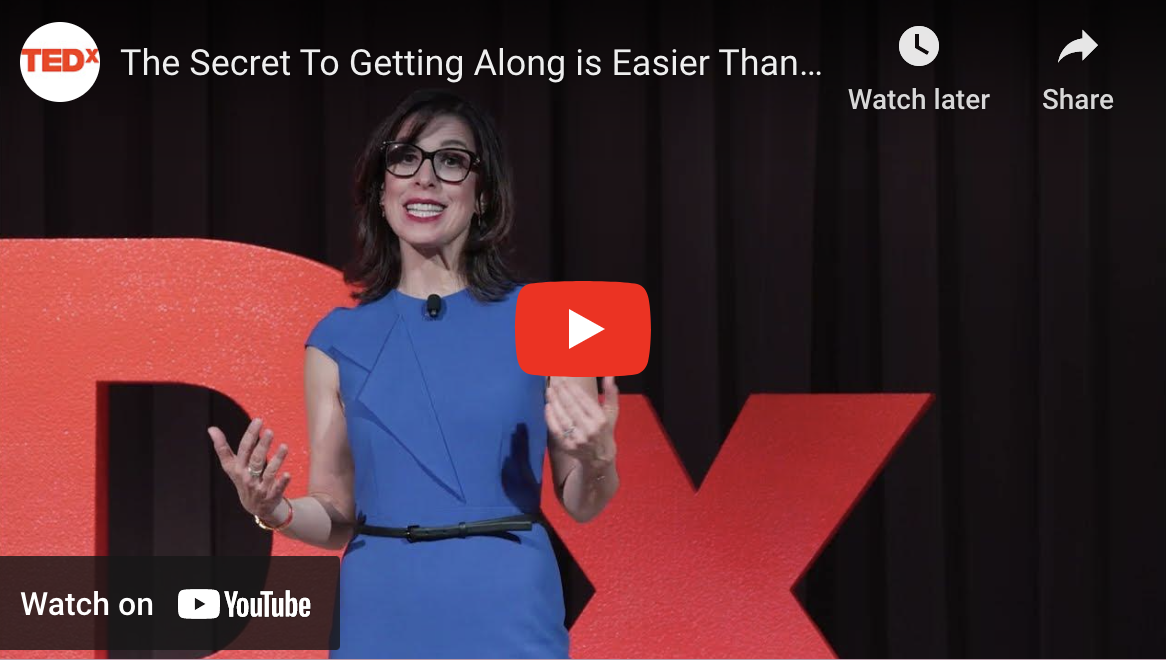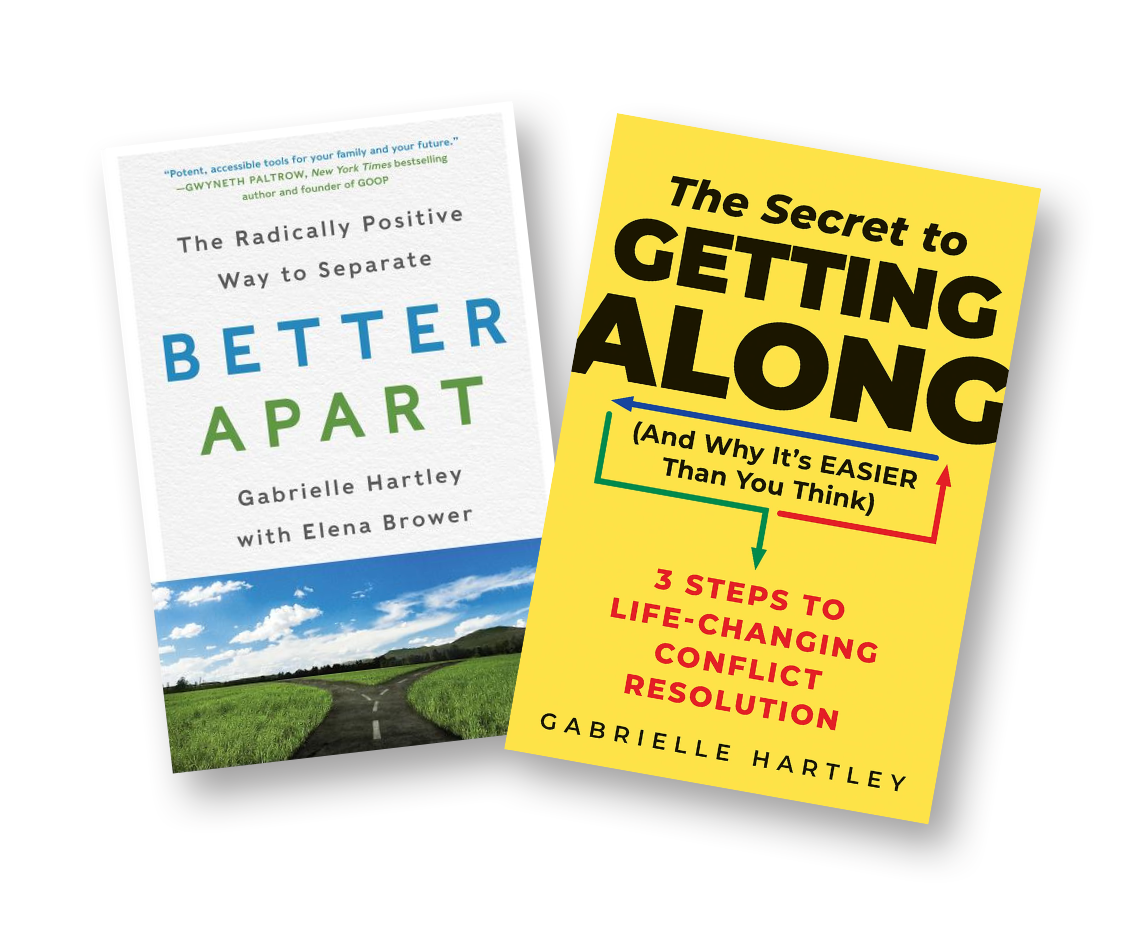How Perimenopause Can Affect Your Decision to Divorce

In a landmark study of midlife and later-life divorce, AAPR discovered that 66% of divorces are initiated by women and 73% were in their 40s. Wow.
We know that everyone’s reasons for divorce are multi-dimensional and unique. But as a self-taught menopause expert I can’t help to think about two life dynamics that certainly influence (or even drive) the milieu that takes a woman down the path of divorce. Those two things are the U-curve of happiness and perimenopause.
Have you heard of the U-curve of happiness? The tl;dr version is that self-reported happiness peaks in our 20s and our 80s and that it bottoms around in our 40s.
If you’ve not heard that before, take a beat and let it sink in. (Here’s a piece about it). The good news is that starting in our 50s, we get happier and happier.
For us women, it’s compounded with another major shift – perimenopause, the first phase of the menopause transition.
The menopause transition is a tumltuous time where physical symptoms such as insomnia, hot flashes, anxiety, and depression affect our daily lives – how we show up for ourselves, our relationships, our work. It also impacts our sense of self. For many women in their 40s, they are in the caretaking “smush” – raising kids, managing a household and taking care of elders. And in that “smush”, women often put their needs last as all their “caring” energy goes outward. And in that “smush” frankly, women get lost. And then there is a high likelihood you’re dealing with divorce.
Perimenopause is hard enough. Symptom specific to perimenopause are those related to your period (vs post-menopause when there are no more periods). Often when we hear the word “menopause”, we automatically map to the “ovaries have shut down, no more estrogen” definition. When in fact, the start of perimenopause is when estrogen production actually goes <<haywire>>. And research studies show that, during perimenopause, estrogen levels are on average higher than any time prior. Yup, higher.
So this requires a deeper understanding of perimenopause and what’s happening.
Estrogen going haywire and hitting high levels can cause symptoms like high anxiety, heavy bleeding and hot flashes. And pay attention, because perimenopause kinda sneaks up on most women. Symptoms start and women kinda write them off as just a “wonky period”. This usually starts in our mid-40s.
Tying this back to the U-Curve of happiness, they happen at the same time.

So how can we know what’s what? Is this anxiety because of my mid-40s divorce or is it because of perimenopause? Am I depressed because my relationship has been so unsatisfying or is it because my hormone levels are changing?
Below, I break down three common symptoms of perimenopause (and of life) to help you better understand what’s happening and what you can do about it.
What’s common about these three symptoms is that they can occur because of exogenous or endogenous factors. Meaning, they show up because of something happening in the environment around you (exogenous) or due to hormone changes (endogenous). Hormones are messengers and play complex roles in the body. And for women, both estrogen and progesterone impact our emotions.
1. Anxiety
An example is you’re at a critical point in settlement negotiation and it’s freaking you out. You know you deserve a big number and are worried you and your lawyer can pull it off. Feeling really anxious is entirely reasonable. This is an exogenous trigger.
Now let’s talk about what’s happening internally (endogenously). Here’s a pro tip: when estrogen levels drop, that drop triggers feelings of anxiety.
Remember now the perimenopause “chaos” where estrogen is going haywire. Production is volatile with very high peaks and low lows. This means, there is a lot of “dropping” happening. And sometimes when a wave of anxiety shows up suddenly without “cause”, this could be because of estrogen fluctuation internally and you kinda have no control over that.
Women report seriously crazy anxiety during perimenopause. And I was one of them and I can attest it was seriously intense and crazy. Know that you are not alone.
What to do? The key here is to be able to take a beat.
Ask yourself: is my anxiety a response to something outside me? And if not, give yourself the time and space to “ride out the wave” of the internally triggered anxiety attack and not “spin out”.
For both, I find the best remedy is 10 slow, steady cycles of breath through your nose with a ratio of 1:2, e.g., 3 counts in and 6 counts out. I have created this free tool that guides you through 10 cycles in about 3 mins.

2. Depression
An exogenous trigger could be that you’ve struggled with revitalizing or healing your marriages for years. And you’re convinced that it’s not salvageable and you feel inept and hopeless. Again, this depression looks (and feels) like a continuous state. And it’s a normal and reasonable emotional response to the circumstance.
Low levels of estrogen can be the cause of depressive symptoms. And, tying back to perimenopause hormone chaos, with the volatility and the peaks, there are also lows. Lower than before.
So when you’re feeling waves of depression instead of steady depression, it can be because your estrogen is low. And that’s the difference.
As with anxiety, it’s important to take a beat. Observe and try to differentiate what you’re feeling and how long you’ve been feeling it. If you feel like you are in a wave, trust that it will lift soon. Again, this happened to me. It wasn’t pretty but at least it was temporary.
For “waves” of combat the lows of low depressive feelings, I ate a lot of tofu.
Soybeans are a source of phytoestrogen – a plant form of estrogen – and a natural way to get more estrogen in the body. I cannot say it helped immediately but I trust the science beneath it and continue to incorporate it in my diet as I get closer and closer to my final menstrual period. FWIW, I am def feeling better.
3. Insomnia
80% of women experience sleep disruption during the menopause transition. And often it kicks off with perimenopause. Why? One reason is that progesterone production starts to drop and progesterone is a precursor to melatonin. Less progesterone means less endogenously produced melatonin and so it’s logical that it is harder to fall asleep.
Similarly with insomnia, there are external factors why sleep is shitty.
Too much caffeine. Too much alcohol. Or overwhelming stress from divorce plus kids plus parents plus work plus the world at large.
And, again, the key is to be able to differentiate the source of it. If you identify no external sources, then it could be hormonal. You could take melatonin (which has inconsistent results). My preference is to try to boost progesterone in perimenopause. The best natural remedy is Chasteberry, a traditional plant medicine that has been used for centuries to help women stabilize their reproductive health.
Shifting out of awake/thinking mode is critical to falling asleep.
To help with this, I’ve created another free tool. It’s a 10-minute guided relaxation that you can listen to once you’re tucked up in bed, head ready to hit the pillow.
Throughout my work in menopause, I’ve spoken to hundreds of women. All the women in their 40s and early 50’s were like 😳. And every woman in her late 50s, 60s, 70s and 80s were like 😁 and 💃– radiant and full of life. And they each gave the a version of this messagge: darling, don’t worry about menopause. It’s so beautiful on the other side. I am having the best time of my life.
You will get through it. We will get through it. And it will be more beautiful than you could everage imagine on the other side.

About the Author
Jeanne has been a fierce advocate for women’s health for two decades. She was raised by a world class Tiger Mom, went to University of Michigan Engineering School, MIT Sloan School of Business School, and combined her love of wellbeing and business into a chain of yoga studios, a yoga training company, and a 4-star wellness resort. She is currently the founder and CEO of MIGHTY Menopause® and is building world full of badass elder women.
Learn more about Mighty Menopause
MIGHTY Menopuase’s flagship supplement, Formula 4|5 stands out in the market as the only one designed specifically for the hormonal profile of perimenopause to address its common symptoms of heavy bleeding, irregular cycles, high anxiety, insomnia, hot flashes and night sweats. Formula 4|5 has helped hundreds of women across the globe find relief and get back to living their best lives.



About the Author
Jeanne has been a fierce advocate for women’s health for two decades. She was raised by a world class Tiger Mom, went to University of Michigan Engineering School, MIT Sloan School of Business School, and combined her love of wellbeing and business into a chain of yoga studios, a yoga training company, and a 4-star wellness resort. She is currently the founder and CEO of MIGHTY Menopause® and is building world full of badass elder women.
Learn more about Mighty Menopause
MIGHTY Menopuase’s flagship supplement, Formula 4|5 stands out in the market as the only one designed specifically for the hormonal profile of perimenopause to address its common symptoms of heavy bleeding, irregular cycles, high anxiety, insomnia, hot flashes and night sweats. Formula 4|5 has helped hundreds of women across the globe find relief and get back to living their best lives.


FOLLOW GABRIELLE


DISCLAIMER: The commentary, advice, and opinions from Gabrielle Hartley are for informational purposes only and not for the purpose of providing legal advice or mental health services. You should contact an attorney and/or mental health professional in your state to obtain advice with respect to any particular issue or problem.
- One Edgewater Plaza Suite 304, Staten Island, NY 10305
- 266 Smith Street, Brooklyn, NY 11231
Northampton MA
PHONE:
New York: (917) 905-4553
Boston: (413) 450-0420








